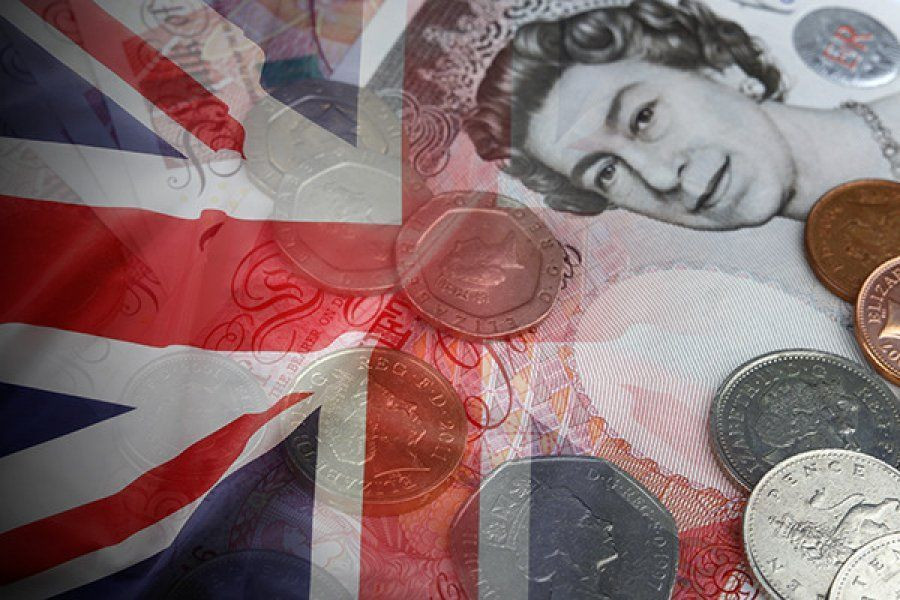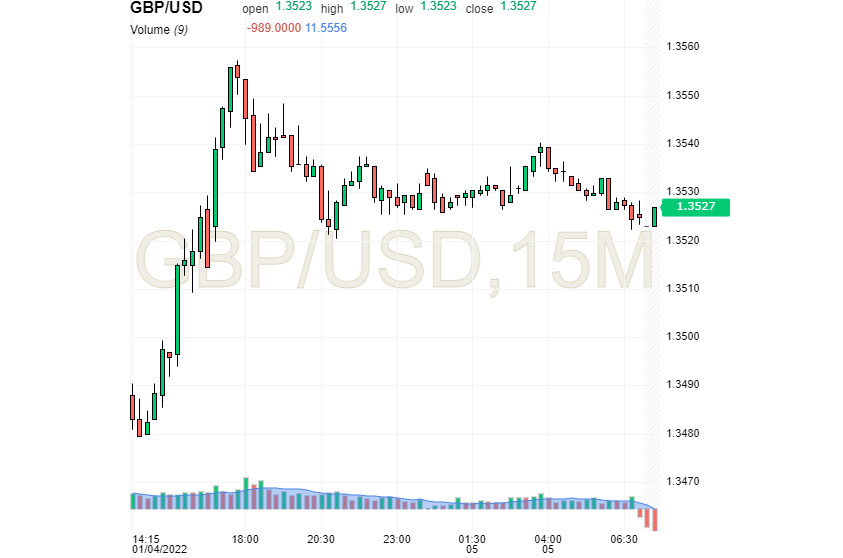
As January begins, the British currency decided to keep up with the American one and achieve new records. The pound has now succeeded in its plans, but experts warn about the temporary nature of its growth.
The pound began the new month of the new year by reaching price highs. On Tuesday, it approached two-year highs against the European currency and slightly fell amid the strengthening of the US dollar (by 0.12%, to 1.3464). This was facilitated by a prolonged rise in the cost of government bond yields amid growing expectations about the Bank of England's rate hike. According to preliminary calculations, the interest rate increase will occur next month.
The current situation gave impulse to the pound, which it successfully used. On Wednesday morning, the GBP/USD pair was trading at the level of 1.3527, regaining previous losses and heading towards new levels. However, experts are worried that the pound will not be able to hold on to the reached positions in the mid-term and will plunge again.

Many economists believe that the growth of the pound and the GBP/USD pair will be temporary if inflation in the US and UK accelerates. Currently, the British economy is growing at a slower pace than the American one. The reason for this is the Fed's decisive action on key issues related to stimulus cuts and multiple rate hikes in 2022. As for the Bank of England, it is not planning any radical changes in its monetary policy in the near future. At the moment, the key interest rate of the Fed and the Central Bank of England is at the same level – 0.25%.
If the British regulator refrains from further tightening monetary policy and raising rates, then the pound's growth will be questionable. On the other hand, the Fed's hawkish actions are helping the US dollar's growth, which will continue in 2022. The multi-directional monetary strategies of the Fed and the Bank of England create prerequisites for a decline in the GBP/USD pair in the coming year.
The current superiority of the pound is explained by several factors, including the Bank of England's sudden increase in rates recorded in December 2021, and the refusal of the British authorities from new restrictive measures. According to British Prime Minister Boris Johnson, the new mutation of the Omicron coronavirus is much milder than other strains. Market participants expect a two-fold increase in rates by the Bank of England. It is possible that the rate will be increased by 15 basis points (bp) by the March meeting of the regulator. By the end of this year, experts do not exclude an additional increase. According to economists, the Bank of England will continue this strategy in 2023.
Economic activity in the UK has remained stable for several months. According to the latest PMI reports, production in the country in December 2021 grew at a faster pace than expected. This inspires the markets with optimism and allows them to make positive forecasts. During the reporting period, the number of jobs fell slightly, but this was offset by an increase in the volume of new orders and an increase in production. Analysts' concern was caused by a significant increase in prices, increasing fears about a new round of inflation.
The current turmoil did not stop the pound's rally, which peaked at the level of 1.4212 in May last year. However, it was brought down by the unexpected decision of the Bank of England in December not to raise interest rates. Against this background, it declined to the lows of 2021 (1.3200), but later recovered. Currency strategists at DBS Bank expect the GBP/USD pair to remain in a low range of 1.2800-1.3300 this year.
The factors slowing down the rate hike by the regulator may be the problems associated with Brexit, as well as difficulties in the trade negotiations between London and Brussels. It is possible that if the negotiations fail, the British government will apply Article 16 and start a trade war with the EU. The implementation of such a scenario would jeopardize the stability of the British economy and national currency. However, analysts hope to reach a compromise in the course of mutually beneficial trade cooperation.
 English
English 
 Русский
Русский Bahasa Indonesia
Bahasa Indonesia Bahasa Malay
Bahasa Malay ไทย
ไทย Español
Español Deutsch
Deutsch Български
Български Français
Français Tiếng Việt
Tiếng Việt 中文
中文 বাংলা
বাংলা हिन्दी
हिन्दी Čeština
Čeština Українська
Українська Română
Română

